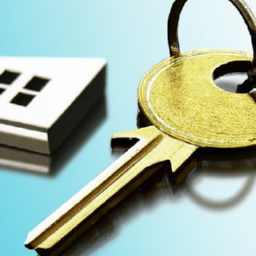Get all the information you need about the "Clear to Close" process in the real estate industry. Understand its importance, the required documentation, common delays, and tips to expedite the process.
Conventional Loan

A conventional loan is a type of mortgage that is not insured or guaranteed by a government agency, such as the Federal Housing Administration (FHA) or Veterans Affairs (VA). Instead, it is backed by private lenders and follows specific guidelines set by Fannie Mae and Freddie Mac. With a conventional loan, borrowers are required to make a down payment and may benefit from lower interest rates if they have a higher credit score. This article will explore the features and benefits of a conventional loan, providing valuable insights for those considering this type of mortgage.
What is a Conventional Loan?
A conventional loan refers to a mortgage that is not guaranteed or insured by the government. These loans are offered by private lenders such as banks, credit unions, and mortgage companies. Unlike government-backed loans such as FHA or VA loans, conventional loans follow the guidelines set by Fannie Mae and Freddie Mac, the two major government-sponsored enterprises in the mortgage industry.
Definition
A conventional loan is a type of mortgage that is not backed or insured by the government. It is a private loan that is offered by banks, credit unions, and other financial institutions.
Features
Conventional loans have several key features that set them apart from other types of mortgages. One of the main features is that they typically require a higher credit score and a larger down payment compared to government-backed loans. Additionally, conventional loans offer a wide range of loan terms and options, such as fixed-rate and adjustable-rate mortgages.
Requirements
To qualify for a conventional loan, borrowers must meet certain requirements set by the lender. These requirements include having a good credit score, a stable income, and a low debt-to-income ratio. The specific requirements may vary depending on the lender and the type of conventional loan being applied for.
Types of Conventional Loans
There are several types of conventional loans available to borrowers, each with its own characteristics and benefits. These include Conforming loans, non-conforming loans, fixed-rate loans, and adjustable-rate loans.
Conforming Loans
Conforming loans are conventional loans that meet the guidelines set by Fannie Mae and Freddie Mac. These loans are typically popular among borrowers as they offer competitive interest rates, lower down payment requirements, and more flexible repayment terms.
Non-conforming Loans
Non-conforming loans, also known as jumbo loans, are conventional loans that exceed the loan limits set by Fannie Mae and Freddie Mac. These loans are often used for higher-priced properties, and they require larger down payments and stricter qualifications.
Fixed-rate Loans
Fixed-rate loans are conventional loans that have a fixed interest rate for the entire duration of the loan term. This means that the monthly mortgage payment remains the same throughout the life of the loan, providing stability and predictability for borrowers.
Adjustable-rate Loans
Adjustable-rate loans, on the other hand, have an interest rate that can fluctuate over time. These loans typically have a fixed rate for an initial period, usually 3, 5, 7, or 10 years, after which the rate adjusts periodically based on market conditions.
Advantages of Conventional Loans
Conventional loans offer several advantages over other types of mortgages. Understanding these advantages can help borrowers make an informed decision when choosing the right loan for their needs.
Lower interest rates
One of the key advantages of conventional loans is that they often offer lower interest rates compared to government-backed loans. This is especially true for borrowers with a good credit score and a low debt-to-income ratio, as they are considered less risky by lenders.
Faster processing times
Conventional loans generally have faster processing times compared to government-backed loans. This is because private lenders have more flexibility in the underwriting process, allowing them to make decisions quickly and efficiently.
Flexible repayment terms
Conventional loans provide borrowers with a wide range of repayment term options, including 10, 15, 20, 25, and 30 years. This flexibility allows borrowers to choose the loan term that best fits their financial goals and budget.
No mortgage insurance
Another advantage of conventional loans is that they do not always require mortgage insurance. If a borrower can provide a down payment of 20% or more, they may be able to avoid paying mortgage insurance, which can significantly reduce the monthly mortgage payment.
Disadvantages of Conventional Loans
While conventional loans offer many benefits, they also come with a few disadvantages that borrowers should consider before applying.
Stricter qualification criteria
Compared to government-backed loans, conventional loans often have stricter qualification criteria. Lenders typically require borrowers to have a higher credit score, a lower debt-to-income ratio, and a more stable employment history to qualify.
Higher down payment requirements
Conventional loans generally require borrowers to make a larger down payment compared to government-backed loans. While the minimum down payment can vary depending on the lender and the borrower’s financial situation, it is typically around 5% to 20% of the purchase price.
Limited options for low credit scores
Borrowers with low credit scores may find it more challenging to qualify for a conventional loan compared to government-backed loans. Conventional lenders usually prefer borrowers with a credit score of at least 620 or higher.
Private mortgage insurance may be required
If a borrower cannot provide a down payment of 20% or more, they may be required to pay private mortgage insurance (PMI) on their conventional loan. PMI is an additional cost that protects the lender in case the borrower defaults on the loan, and it can increase the monthly mortgage payment.
Criteria for Qualifying
To qualify for a conventional loan, lenders consider various factors, including credit score, debt-to-income ratio, down payment, and employment history.
Credit score
Lenders typically require a minimum credit score of 620 or higher to qualify for a conventional loan. However, borrowers with a higher credit score may have access to better interest rates and more favorable terms.
Debt-to-income ratio
The debt-to-income ratio is another important factor that lenders consider when evaluating a borrower’s eligibility for a conventional loan. This ratio compares the borrower’s monthly debt payments to their gross monthly income. Most lenders prefer a debt-to-income ratio of 43% or lower.
Down payment
Conventional loans require a down payment, which is the initial cash amount paid by the borrower toward the purchase price of the property. While the minimum down payment can vary, it is typically around 5% to 20% of the purchase price.
Employment history
Lenders also consider the borrower’s employment history when evaluating their eligibility for a conventional loan. Having a stable and consistent employment history demonstrates financial stability and increases the chances of approval.
How to Apply for a Conventional Loan
Applying for a conventional loan involves several steps, from researching lenders to submitting the loan application and waiting for the lender’s decision.
Research lenders
Start by researching different lenders and comparing their rates, fees, and terms. Look for lenders who specialize in conventional loans and have a good reputation in the industry.
Gather necessary documents
Before applying for a conventional loan, gather all the necessary documents, including proof of income, bank statements, tax returns, and employment history. Having these documents ready will streamline the application process.
Submit the loan application
Once you have chosen a lender, submit a completed loan application along with the required documents. The lender will review your application and documents to assess your eligibility for a conventional loan.
Wait for the lender’s decision
After submitting the loan application, you will need to wait for the lender’s decision. This process may take several days or weeks, depending on the lender’s workload and the complexity of your application.
Factors Affecting Conventional Loan Rates
Several factors can influence the interest rates on conventional loans. Understanding these factors can help borrowers make informed decisions and potentially secure more favorable rates.
Credit score
A borrower’s credit score plays a significant role in determining the interest rate they will receive on a conventional loan. Generally, borrowers with higher credit scores are offered lower interest rates, while those with lower credit scores may face higher rates.
Down payment
The down payment amount can also affect the interest rate on a conventional loan. Borrowers who can provide a larger down payment typically receive more favorable rates compared to those who make a smaller down payment.
Loan term
The duration of the loan term can impact the interest rate. Typically, shorter loan terms, such as 15 or 20 years, come with lower interest rates compared to longer loan terms, such as 30 years.
Market conditions
Interest rates on conventional loans are influenced by market conditions, including factors such as inflation, economic indicators, and the federal funds rate set by the Federal Reserve. Market conditions can cause interest rates to fluctuate over time.
Difference Between Conventional and Government-backed Loans
While conventional loans and government-backed loans share similarities, there are several key differences that borrowers should be aware of when choosing the right loan option for their needs.
Eligibility requirements
Government-backed loans, such as FHA and VA loans, have less stringent eligibility requirements compared to conventional loans. These loans are designed to assist borrowers who may not qualify for conventional financing due to factors such as lower credit scores or limited down payment funds.
Loan limits
Conventional loans have loan limits set by Fannie Mae and Freddie Mac. If the loan amount exceeds these limits, it is considered a non-conforming or jumbo loan. In contrast, government-backed loans often have higher loan limits that vary depending on the location.
Mortgage insurance
Both conventional and government-backed loans may require mortgage insurance if the down payment is less than 20%. However, the types and costs of mortgage insurance differ. Conventional loans typically require private mortgage insurance (PMI), while government-backed loans may require upfront mortgage insurance premiums (UFMIP) or ongoing mortgage insurance premiums (MIP).
Common Myths about Conventional Loans
There are several common myths about conventional loans that can often lead to misconceptions among borrowers. It is important to debunk these myths to have a clear understanding of conventional financing.
Only for borrowers with excellent credit
Contrary to popular belief, conventional loans are not exclusively for borrowers with excellent credit. While a good credit score is generally required, there are conventional loan options available for borrowers with lower credit scores.
Requires a 20% down payment
Another common myth is that conventional loans require a 20% down payment. While a larger down payment can help borrowers avoid mortgage insurance, it is not always required. Many lenders offer conventional loans with down payment options as low as 3%.
Difficult to qualify for
While conventional loans may have stricter qualification criteria compared to some government-backed loans, they are not necessarily difficult to qualify for. With a good credit score, a stable income, and a manageable debt-to-income ratio, many borrowers can meet the requirements for a conventional loan.
Limited to primary residences
Some borrowers believe that conventional loans are only available for primary residences. However, conventional loans can be used for various types of properties, including second homes and investment properties.
Frequently Asked Questions
What is the minimum credit score needed for a conventional loan?
Lenders typically require a minimum credit score of 620 or higher to qualify for a conventional loan. However, some lenders may have slightly different requirements and may consider borrowers with lower credit scores on a case-by-case basis.
Can I use a conventional loan for an investment property?
Yes, conventional loans can be used to finance investment properties. However, lenders may have stricter requirements for borrowers seeking a loan for an investment property, such as a higher down payment or a lower maximum loan-to-value ratio.
Is it possible to avoid paying private mortgage insurance on a conventional loan?
Borrowers who can provide a down payment of 20% or more on a conventional loan may be able to avoid paying private mortgage insurance (PMI). However, it is important to note that PMI is often required if the down payment is less than 20% to protect the lender in the event of borrower default.


